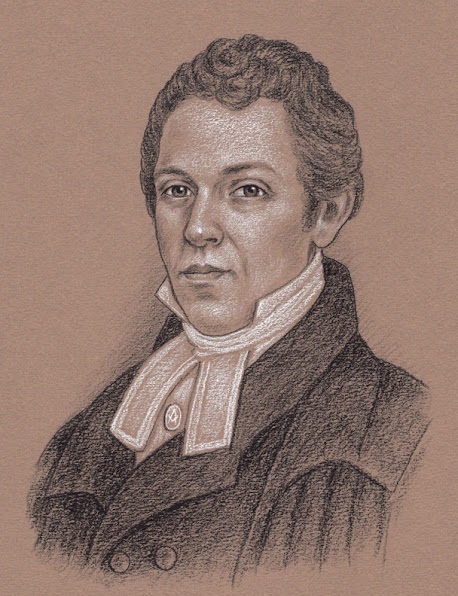
James Anderson
James Anderson was born in Aberdeen in 1690 and educated at Marischal College from 1705 to 1709. Soon thereafter he was licensed to preach as a Church of Scotland minister by the Presbytery of Aberdeen.
In 1710 he was appointed minister of the Church of Scotland for the Scots population living in Westminster. He originally preached from a newly-built meeting hall at Glasshouse Street and then moved to the French Protestant Chapel in Swallow Street, London and in 1734 moved to Lisle Street, Leicester Square. According to the Gentleman’s Magazine, he is said to have been “well known among the people of that persuasion resident in London as Bishop Anderson” and he is described as “a learned but imprudent man, who lost a considerable part of his property in the fatal year 1720”, this probably referring to the crash of the South Sea Company in 1720.
Anderson was a freemason, a member of the Royal Society and a friend of Isaac Newton and John Theophilus Desaguliers. When, in 1721, the Grand Lodge determined to produce an authoritative digest of the Constitutions of the fraternity, the task was assigned to him. He created; “The Constitutions of the Free-Masons; containing the History, Charges, Regulations, etc. of that Most Ancient and Right Worshipful Fraternity for the Use of the Lodges of London. in the year of Masonry 5723, Anno Domini 1723.
This work, which passed through several editions, was long recognised by the English freemasons to be the standard code on its subject, and was translated into German. Anderson also contributed to masonic literature A Defence of Masonry, occasioned by a pamphlet called “Masonry Dissected” (c1738), which was translated into German, and is reprinted in Golden Remains of the Early Masonic Writers by George Oliver (1847).
Anderson’s work, although of the first importance to the history of freemasonry, is unfortunately marred by a number of extravagant claims which are simply incredible. Indeed, it was shown at the tercentenary conference of the respected Quatuor Coronati research Lodge at Queens’ College, Cambridge, that Anderson’s history of the founding of the Grand Lodge is doubtful, since the public houses mentioned could probably not have accommodated the meetings that he claims were held in 1717. Anderson’s account must be broadly accurate, having been widely published within six years of the events described, but it may have been backdated by two or three years, perhaps to aggrandise some brethren as Past Grand Officers or more likely to attribute excessive credence to the longevity of the Grand Lodge.
Anderson died in London on 28 May 1739.
![]()
